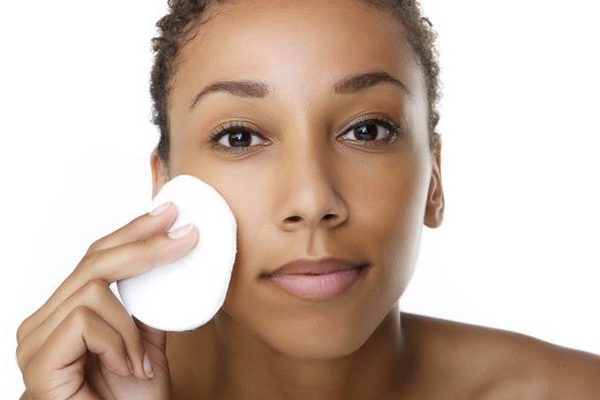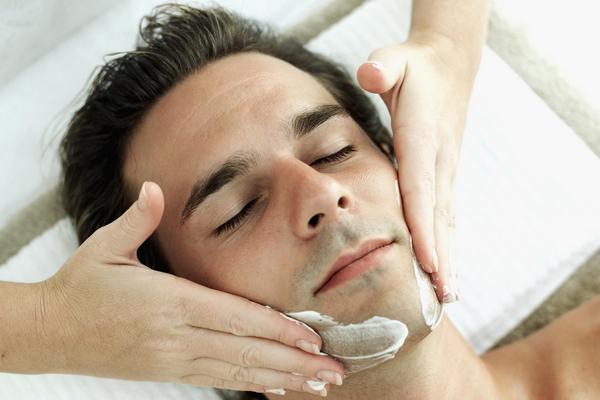Home Page /
Adult Health / Adult Hormonal Acne
Adult Hormonal Acne: Causes and Treatment
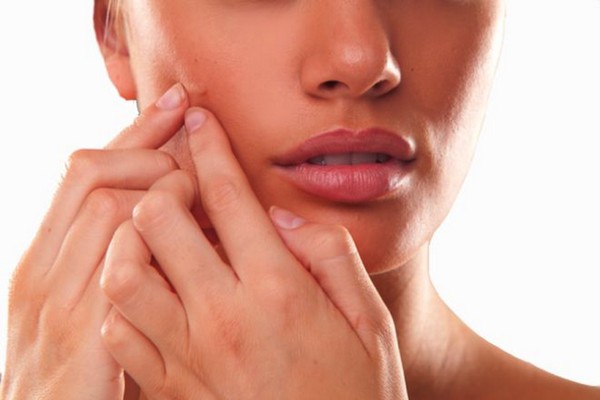
Specialists say that acne is caused by hormones, but there were no serious examinations of this phenomenon to date. Research conducted recently established that almost 50% of all women encounter adult acne breakouts throughout the week before their menstrual cycle.
Specialists say that acne is caused by hormones, but there were no serious examinations of this phenomenon to date. Research conducted recently established that almost 50% of all women encounter adult acne breakouts throughout the week before their menstrual cycle.What is interesting about adult hormonal acne is the fact that they cannot be treated by the usual therapy methods. Topical antibiotics and topical retinoids are useless in this case. Pay attention to the following facts to identify hormonal acne:
- Acne happened first time in adult age;
- Acne eruption intensifying before menstruation;
- Report on irregular menstrual periods;
- Over-active sebaceous glands in facial area;
- Hirsuties (the elevated level of hair on your face or even hair in untypical places);
- Increased level of some male hormones in blood.
What is Adult Hormonal Acne?
Adult hormonal acne is a skin condition affecting men and women over 40, often triggered by hormonal fluctuations. Unlike teenage acne, which is predominantly caused by increased sebum production during puberty, adult hormonal acne is linked to hormonal imbalances related to aging. These imbalances can result from menopause, andropause, or shifts in stress-related hormones, which can stimulate oil production in the skin and cause acne outbreaks.Hormonal acne or adult hormonal acne is also known as acne vulgaris is caused due to the disturbance in skin condition occurring due to overproduction of androgen hormones in the body. Testosterone or Androgen is said to be the main sex hormone which is found both in males and females. Adult hormonal acne is caused due to the excessive production of androgen in the body.
The androgen hormones tend to stimulate sebaceous glands which produce a high amount of natural oil or sebum in the skin. This sebum produced gathers in the hair pores or follicles and later gets mixed with dead cells and bacteria leading to the formation of blemishes or pimples.
Hormonal acne is quite common to appear during puberty but in certain cases, it may continue to appear in elder people. It is also seen that adolescents or teenagers suffer more from hormonal acne because of the hormonal changes that take part in their body during that time.
Also during that period hormonal acne is more noticeable in males as compared to females because of the fact that males produce more testosterone than females. While females might suffer more from such acne during the natural cycles they undergo which include pregnancy, menstruation, and menopause.
Understanding the unique causes of hormonal acne after 40 is the first step toward finding effective solutions. By addressing the root hormonal imbalances and adapting skincare and lifestyle habits, individuals can manage this condition and achieve clearer, healthier skin.
Symptoms of Adult Hormonal Acne
Adult hormonal acne manifests differently from teenage acne and typically has specific characteristics that make it identifiable. This condition commonly affects men and women over 40 and is linked to hormonal changes in the body, which trigger unique patterns of acne formation. Recognizing these symptoms is essential for proper treatment and management.Location
The hallmark of hormonal acne is its location. It often appears on the lower face, especially around the jawline, chin, and neck. These areas are particularly sensitive to hormonal fluctuations, making them prone to breakouts. The acne lesions can include a mix of blackheads, whiteheads, and inflamed, cystic pimples. Cystic acne, in particular, is deep, painful, and often leaves scars if not treated promptly.Cycles
Hormonal acne is typically persistent and recurs in cycles, often worsening at certain times of the month for women due to menstrual fluctuations or during menopause. Men might notice similar cycles of acne exacerbation due to stress or dietary changes that influence hormones.Resistance
Another distinguishing feature of adult hormonal acne is its resistance to standard over-the-counter acne treatments. Many products aimed at clearing acne fail to address the underlying hormonal imbalance, leaving the condition unchanged or even aggravated. Instead of drying out, the skin may become irritated or sensitive, complicating treatment efforts.Skin changes
Individuals with hormonal acne might also experience accompanying skin changes, such as excessive oiliness in some areas or dryness in others, as the skin's natural balance is disrupted. Breakouts can coincide with other hormonal symptoms, including hair thinning or weight fluctuations, indicating systemic hormonal shifts. Understanding these symptoms helps individuals and healthcare providers choose targeted treatments. By identifying the unique signs of hormonal acne, men and women over 40 can work toward clearer skin with therapies that address the root hormonal causes.Development of Adult Hormonal Acne
While some adults may start developing their acne starting only from their 20s or 30s, a certain amount of them seems to never outgrow it, passing into adulthood with the same breakouts. It happens because of changes in hormonal level. When a woman is approaching her period, the estrogen level is decreasing. Ovaries after ovulation produce progesterone and this hormone stimulates the sebaceous glands. Acne comes as the result of this.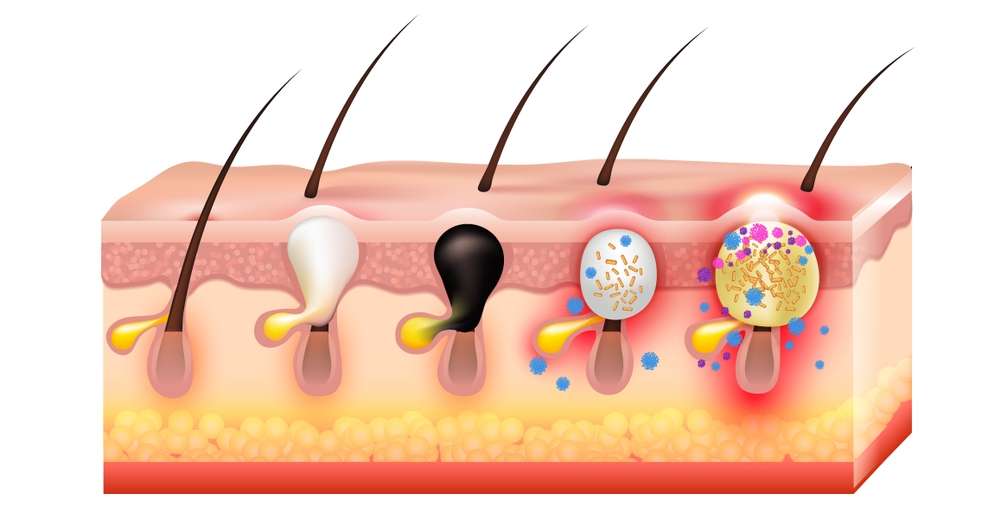
Some pregnant women are affected by hormonally caused acne. During the third trimester, their sebaceous glands elevate oil production, causing frequent breakouts. There are women who suffer from acne outbreaks after menopause as the testosterone level gets higher while estrogen level is decreasing.
As you can see, adults may experience acne problems during their whole life from puberty to their old years. These problems may not disappear with age and can even get worse.
If you want to achieve great results, see your dermatologist who will help you find the best acne treatment.
Causes of Hormonal Acne
Acne provoked by hormonal influence starts at the age of 20-25, sometimes it is topical for teens and at times mature women may have it. Adult acne pimples usually appear on face, especially chin and jaw. But sometimes there are acne traces on the chest or back. Regardless of the fact that hormonally-influenced adult acne is seldom severe and usually manifests itself as small inflammatory nodules and papules, women suffering from the disease can't help but wonder: how does it start?It is known that our adrenal glands start making an androgen, dehydroepiandrosterone sulfate (DHEAS), when we are still kids of about 10 years old. Also at the breakout of puberty two more androgens, so called "male" hormones, dehydrotestosterone (DHT) and testosterone, begin to work in women's bodies. They all stimulate the sebaceous glands to produce more of the skin's natural oil, or sebum.
That's why so many teenagers suffer from oily skin and acne. And boys, who have more "male" hormones, suffer from teen acne more often than girls.
Unlike adult acne, teen acne is often easy to treat.Level of hormones is very flexible at young bodies. First-line treatments will help in most cases and include as topical retinoids and benzoyl peroxide, supported by oral antibiotics.
But after the initial improvement there may come a period when the hormonal level changes and the body stops reacting to the therapy. In such cases the procedure of adult hormonal acne treatment should be altered and it's often suggested to try natural pills for hormonal acne.
See also:
Common Factors That Trigger Hormonal Acne in Adults
There are some people that might experience more of hormonal acne due to hereditary factors.As we mentioned before, puberty is another factor that may trigger hormonal acne. Puberty is the age period during which adolescents reach sexual maturity and becomes capable of reproduction. The body (both males and females) under this period undergoes numerous hormonal changes. The male body as compared to females produces excessive androgen hormones which are responsible for the formation of pimples or skin blemishes. The females on the other side also suffer from hormonal acne due to an imbalance of hormones in the body.
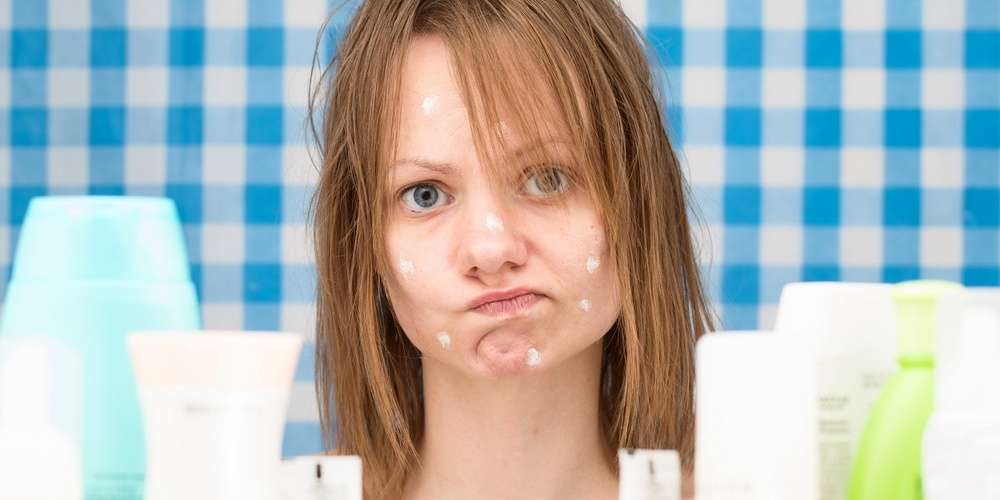
Factors That Trigger Hormonal Acne in Adults
- Deficiency of Minerals and Vitamins - It is obvious to say that vitamins and minerals play a positive role in maintaining the balance of hormones in our body. Therefore, the absence of different minerals and vitamins in the routine diet can cause the body to lack enhanced immunity that is necessary for the body to fight against viruses and infections which body is prone to.
- Stress - Stress from adrenal glands boost up the production of hormones, both in males and females. The reaction caused due to stress is responsible to worsen the skin condition.
- Excessive intakes of sugars and fatty foods - Excessive intakes of food that are rich in sugars and fats might also cause hormonal acne in adults. The reason for the cause of acne is essentially due to the fact that our body stores more fat which we consume that later clog in the skin pores. Furthermore, high intake of sugar can cause inflammations on the skin because of the overproduction of insulin in the body.
- Menstruation, Menopause, Pregnancy - A women during ovulation, pregnancy or menstruation experiences a sharp decrease in sex hormone estrogen in their body. This decline of estrogen hormone is also accompanied by the increase of testosterone that further triggers the formation of acne vulgaris.
- Dead Skin Accumulation - Dead skin cells are also responsible for giving rise to skin acne. The skin cell that gathers in the pores mixes with skin oil (sebum) to give rise to skin blemishes or pimples.
- Use of Steroids - Excessive use of steroids can also cause hormonal acne in adults. Use of steroids boosts production of testosterone in males which further results in an imbalance of hormones in the body and giving rise to skin related problems.
- Presence of bacteria in the skin pores - Presence of bacteria in the hair follicles results in the formation of pimples or dark spots on the face.
Impact of Hormonal Acne on Men and Women Over 40
Hormonal acne can significantly affect men and women over 40, influencing both physical appearance and emotional well-being. At this stage of life, when many individuals expect their skin concerns to lessen, the emergence of acne can feel frustrating and unexpected.Physical Effects
The physical impact of hormonal acne goes beyond temporary blemishes. Acne lesions, especially cystic ones, can be painful and leave lasting scars if not properly treated. Over time, this can lead to uneven skin texture and discoloration, which may require advanced dermatological procedures to correct.Additionally, hormonal acne often disrupts the skin's natural balance, causing simultaneous issues like excessive oiliness in some areas and dryness in others. For individuals already managing signs of aging, such as wrinkles and sagging skin, acne adds another layer of concern.
Emotional and Psychological Effects
The emotional toll of hormonal acne is equally significant. Breakouts in visible areas like the face can negatively impact self-esteem, making individuals self-conscious about their appearance. This can lead to social withdrawal, anxiety, or even depression, especially when acne persists despite efforts to manage it. For professionals in this age group, visible acne might affect confidence during social or work interactions, adding stress to an already demanding lifestyle.Broader Lifestyle Impacts
Managing hormonal acne often requires lifestyle adjustments that can be challenging. Specialized skincare routines, dietary changes, or the need for prescription medications might become part of daily life. These changes can feel burdensome, especially for individuals balancing multiple responsibilities.Understanding the broad impact of hormonal acne is essential for finding comprehensive treatment solutions. Addressing both the physical and emotional effects can help men and women over 40 regain their confidence and maintain healthier, clearer skin.
Adult Hormonal Acne Treatment
Hormonal acne in both male and females can be treated with the 2 following certain methods: non-prescription treatments and prescription medications.Non-prescription Treatment for Adult Hormonal Acne
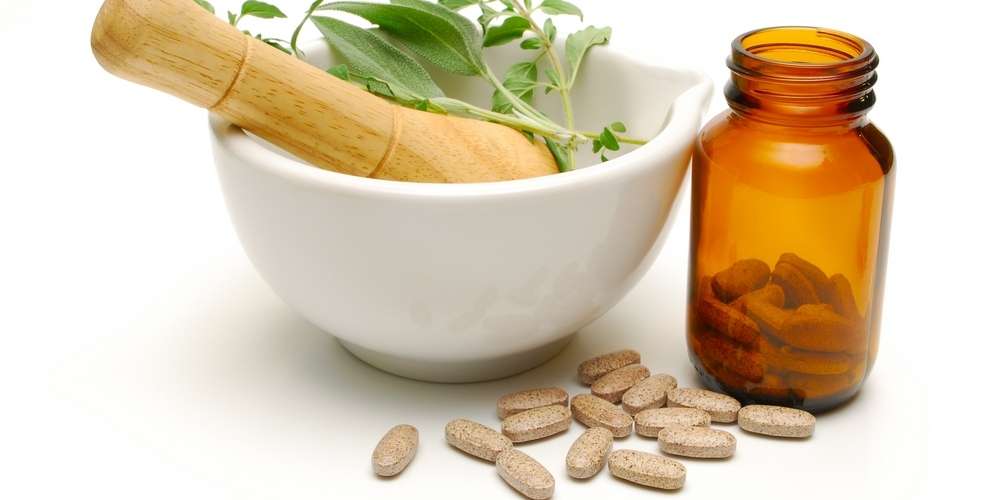
Natural Treatment for Adult Hormonal Acne
- Soap and Water - Cleaning the face gently with soap and water 2 times a day can help in treating the hormonal acne properly. Tough, it should be kept in mind that this adult hormonal acne treatment will not clear up the already existing acne on the skin but will lower down the impact of inflammation caused due to acne.
- Cleansers - Cleansers often contain glycolic acid, benzoyl peroxide, salicylic acid, and sulfur that are helpful for the treatment of acne. Excessive use of cleansers should be avoided as it might even harm the skin or cause other skin problems.
- Salicylic acid - The abnormal shedding of cells can be controlled on the skin with the help of salicylic acid. The acid, however, does not have any effect on the production of sebum and also don't kill any bacteria. The acid is responsible for unclogging pores to prevent lesions in case of milder acne.
- Alcohol and Acetone - Acetone helps in removing oil from the surface of the skin while alcohol is used as a mild anti-bacterial agent. Both the agents are used together to dry out the skin and usually have little effect on the acne.
- Sulfur - Sulfur is a component that is used in many acne medications in combination with other substances such as salicylic acid and alcohol. Since it has an only marginal effect over acne; sulfur is generally not recommended by dermatologists for adult hormonal acne treatment.
- Benzoyl Peroxide - In case of mild acne, the doctor might recommend going for a hormonal acne treatment with a non-prescriptive drug having a certain amount of benzoyl peroxide. Benzoyl peroxide helps in destroying bacteria that causes acne problem. To keep acne at bay, the compound must be used continuously for at least four weeks. Unlike other over-the-counter prescribed products, it does not affect sebum production and the acne comes back when you stop using the compound. Excessive use of benzoyl peroxide can cause dryness of skin or irritation in the skin; therefore one must take care at the time of applying the solution.
- Topical retinoid gel - The topical retinoid gel is helpful in decreasing inflammation and swelling of skin as well as increasing the growth of cells. The gel stops the new pimples to form on the skin. As compared to other non-prescribed treatments for hormonal acne, topical retinoid gel might take 8-12 weeks to show desired results.
- Green Tea - Green tea can be consumed to lower down the level of inflammation in the body. Apart from following the local practice of skin care regimen one can consider drinking few cups of green tea per day to energize the skin automatically.
- Herbal pills for hormonal acne - There are hundreds of herbal, organic, and natural pills for hormonal acne available in the market that guarantee of providing an effective solution to get rid of hormonal acne. A part of these pills for hormonal acne, however, are unlikely to have many benefits as once you stop taking them the acne will pop out again after a certain time span.
Prescription Treatments for Adult Hormonal Acne
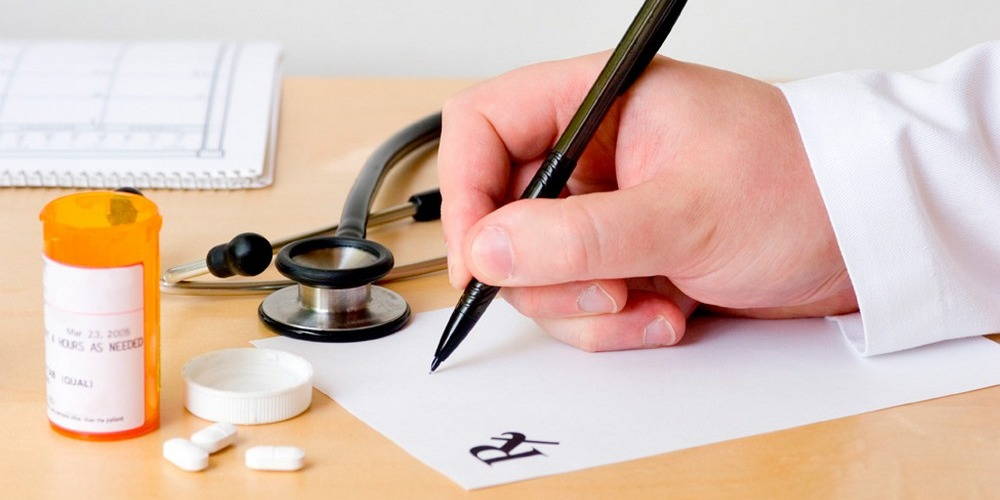
Prescription Treatment for Adult Hormonal Acne
- Retinoids or vitamin A derivatives - These type of medications are available as oral pills for hormonal acne and topical lotions. These medications help in wiping out moderate to severe acne by normalizing the skin. Retinoids can be used in combination with other products for adult hormonal acne treatment such as oral antibiotics and benzoyl peroxide to fasten the effect of removal of acne. Though topical retinoids don't have much of side effects, their usage is not recommended for nursing or pregnant women. Minor side effects that are associated with this product include dryness, redness and itchy skin.
- Azelaic acid - This medication is said to have antibacterial and anti-inflammatory properties that help in getting rid of hormonal acne. The gel or cream is also used to cure another type of condition which is popularly known as Rosacea.
- Oral Contraceptives - Doctors often suggest birth control pills to women to lower down the effect of male hormones testosterone on the acne rising on the skin. These contraceptives are limit to be used by female patients only and show desired results in the time period of 3 to 4 months. Some of the side effects associated with contraceptive pills for hormonal acne include nausea, breast tenderness, weight gain, and blood clots.
- Spironolactone - This medication is especially used for blocking the action of body's hormones on the oil glands present on the skin. This type of medication is helpful for women whose acne worsen during the time of menstruation.
Why Natural Supplements Are Ideal for Men and Women After 40
For men and women over 40 dealing with hormonal acne, natural supplements offer a compelling solution that aligns with both their skin health needs and their overall wellness. Unlike traditional medications that can sometimes have harsh side effects, natural supplements provide a gentler, more sustainable way to manage acne and prevent future outbreaks.Safety and Minimal Side Effects
One of the primary advantages of natural acne treatment supplements is their safety profile. Many prescription acne medications can lead to side effects like dryness, irritation, or redness, and may even disrupt the skin's natural barrier. In contrast, natural supplements made from herbs, vitamins, and minerals are generally well-tolerated, with minimal risk of adverse reactions. Because they work with the body's natural processes, they are often gentler on the skin, especially for those with sensitive skin or other age-related concerns like dryness or thinning skin.Compatibility with Other Treatments
Natural acne supplements can be used in conjunction with other skincare treatments or medications, making them a versatile option for individuals seeking to improve their skin. Whether it's a customized skincare routine, hormonal therapy, or lifestyle changes, natural supplements support the body's healing and balancing processes without interfering with other treatments. This makes them ideal for adults over 40 who may be using various approaches to address aging skin and acne at the same time.Prevention and Long-Term Results
While many traditional acne treatments offer only temporary relief, natural supplements help address the root causes of hormonal acne, particularly imbalances in estrogen and testosterone. By promoting long-term hormonal balance, these supplements can help reduce the frequency and severity of acne outbreaks over time. Additionally, they often provide other health benefits, such as improved immune function, better digestion, and enhanced skin elasticity, making them an ideal solution for those looking for both acne prevention and overall wellness.For individuals over 40, natural supplements provide a holistic, effective, and safe way to address hormonal acne while supporting skin and overall health in the long run.Read more about natural treatment of adult acne
References:
comments powered by Disqus


 Article by Adult Health Care Center
Article by Adult Health Care Center